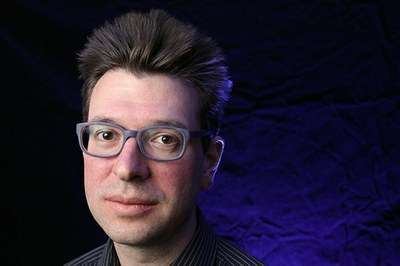Electric Brain Stimulation Has Mixed Effect on IQ
 Researchers at The University of North Carolina School of Medicine conducted a study led by Flavio Frohlich, Ph.D. to see how transcranial direct current stimulation ( tDCS) affected IQ scores.
Researchers at The University of North Carolina School of Medicine conducted a study led by Flavio Frohlich, Ph.D. to see how transcranial direct current stimulation ( tDCS) affected IQ scores.
Interest in applications of tDCS arose after a group of German scientists published a paper revealing this method could alter the state of neurons in the area of the brain that controls body movements, according to the university’s press release. More studies were launched at that point to see how tCDS could change other functions in the brain, like working memory.
However, Dr. Frohlich and his group wanted to test tDCS’s impact on cognitive abilities.
The researchers gathered 40 healthy adults and had them take the WAIS-IV, a standard test for assessing intelligence. Questions focus on verbal comprehension, processing speed, working memory, and other factors.
Participants were split into two groups one week later. Researchers fastened electrodes on each side of the test subjects’ scalp on top of where the frontal cortex resides. Angel Peterchev, Ph.D., Duke University professor and study co-author helped Frohlich’s team create imaging simulations to target similar parts of the frontal cortex where other tDCS studies have experimented on before.
The placebo group received a brief shock while the other segment got the standard tDCS treatment, which delivers a 20 minute blast of a weak electrical current.
Partakers of this experiment took the IQ test again, but the results were mixed. Frohlich’s group found the placebo group experienced a 10 point IQ boost, while their counterparts saw an increase of just six on average.
Furthermore, the team’s analysis of test scores saw similar results occur in three out of the four cognitive tests for both groups.
The major difference, though, happened in the perceptual reasoning category. This area primarily focuses on logical thinking and manufacturing problem-solving solutions. Patients who had experienced full tDCS had much lower scores in this area compared to the placebo group.
Said Dr. Frohlich in a statement: “Our findings do not preclude the possibility that other tDCS paradigms may be less harmful or even beneficial. However, it is time to make sure that everybody uses gold standard, placebo-controlled, double-blind study designs. Also, our study demonstrates the importance of more research on how stimulation interacts with brain activity.”
He emphasized the importance of the scientific community not viewing tDCS as a “magic pill” for neurological conditions adding that there should be “smarter ways” of thinking about targeting and improving certain brain issues.
Results of the study were published in the journal Behavioural Brain Research.



